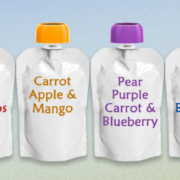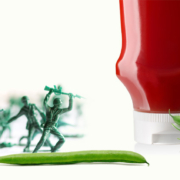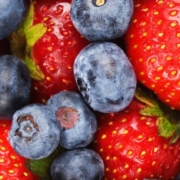Fruit and Fatty Liver Disease
Non-alcoholic fatty liver disease (NAFLD) is on the rise in the U.S. and around the world. Estimates are by 2030, NAFLD will be the primary cause of liver transplants in the world. NAFLD is caused by obesity; associated conditions such as type 2 diabetes and metabolic syndrome are contributing factors. But does fruit intake contribute to NAFLD? According to one physician it does; that inspired him to record a video titled “Secret Sugar in Fruit” or as he calls it, the Three Myths of Fruit. He’s an advocate of the ketogenic diet, as many people are today, but is he correct about fruit? I thought I’d check it out.
Myth One: Fruit Contains Only Fructose
His opening statement about fruit is that nutritionists and Internet gurus are suggesting that fructose is the only sugar in fruit. He gives examples of the breakdown of sugars in five fruits, based on the USDA Food Database. No problem with that. But to say that most nutritionists don’t know that fruit contains a variety of sugars means he’s never had a basic nutrition class on macronutrients, because it’s certainly taught in those classes. Anyone who’s ever looked up any type of fruit on the database would clearly see there’s more than one type of sugar.
He also claims that the sugar in some small servings of fruit with as little as two grams of glucose or sucrose will spike blood sugars and insulin levels and that five grams of fructose will cause a fatty liver. He offers no evidence to support those claims.
Myth One contains some accurate facts but is more observational science than fact. Myth One: busted.
Myth Two: The Chemical Structure of Sugars
According to Dr. Berry, nutritionists claim that the chemical structure of glucose, fructose, and sucrose are different in fruit than soda. Not exactly true; they’re chemically identical, but there’s more to it than that. Myth Two: mostly busted.
I’ll cover the third myth on Saturday and set the record straight on fruit and NAFLD. You can watch the short video at the link below. He’s a personable guy, committed to keto, but reliant on observational science. We’ll talk about why that’s a problem next time.
What are you prepared to do today?
Dr. Chet
References:
1. Gastroenterology. 2020 May;158(7):1851-1864.
2. https://www.youtube.com/watch?v=URMLzoK95V4









